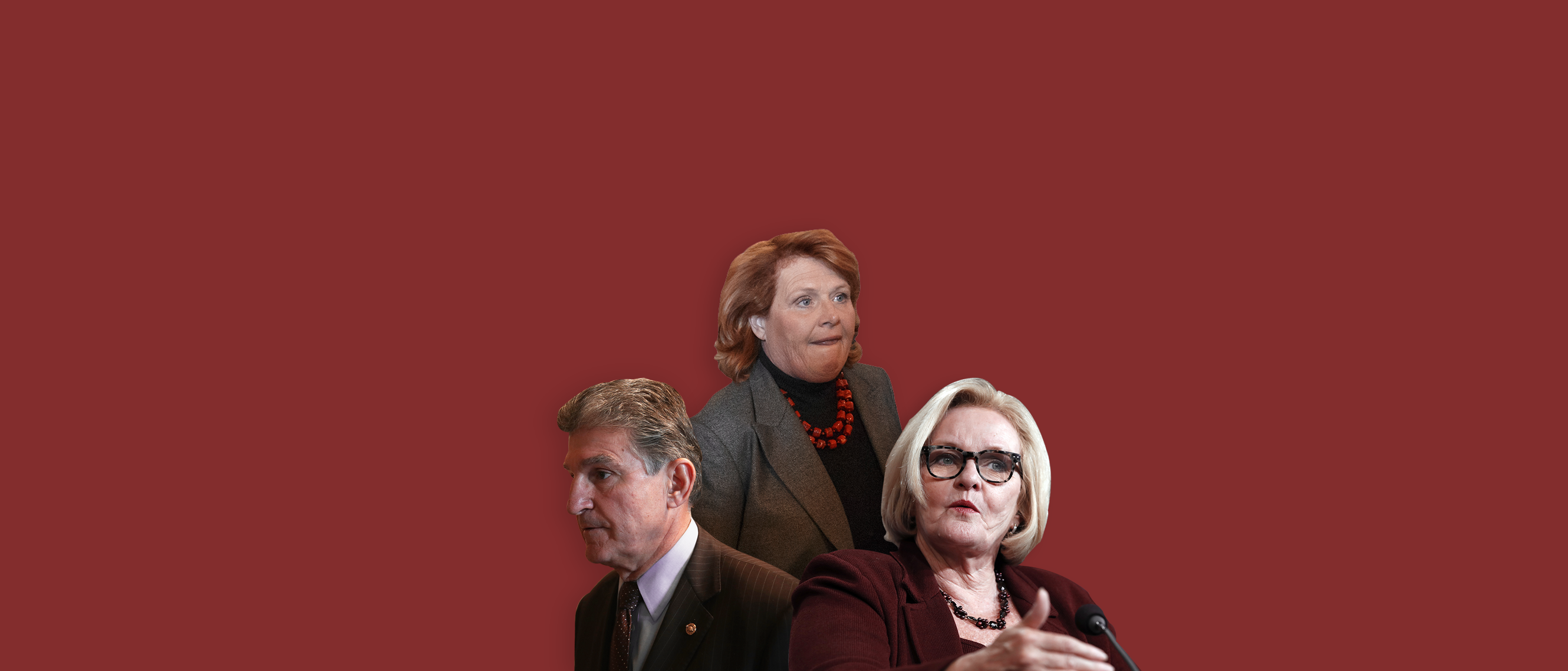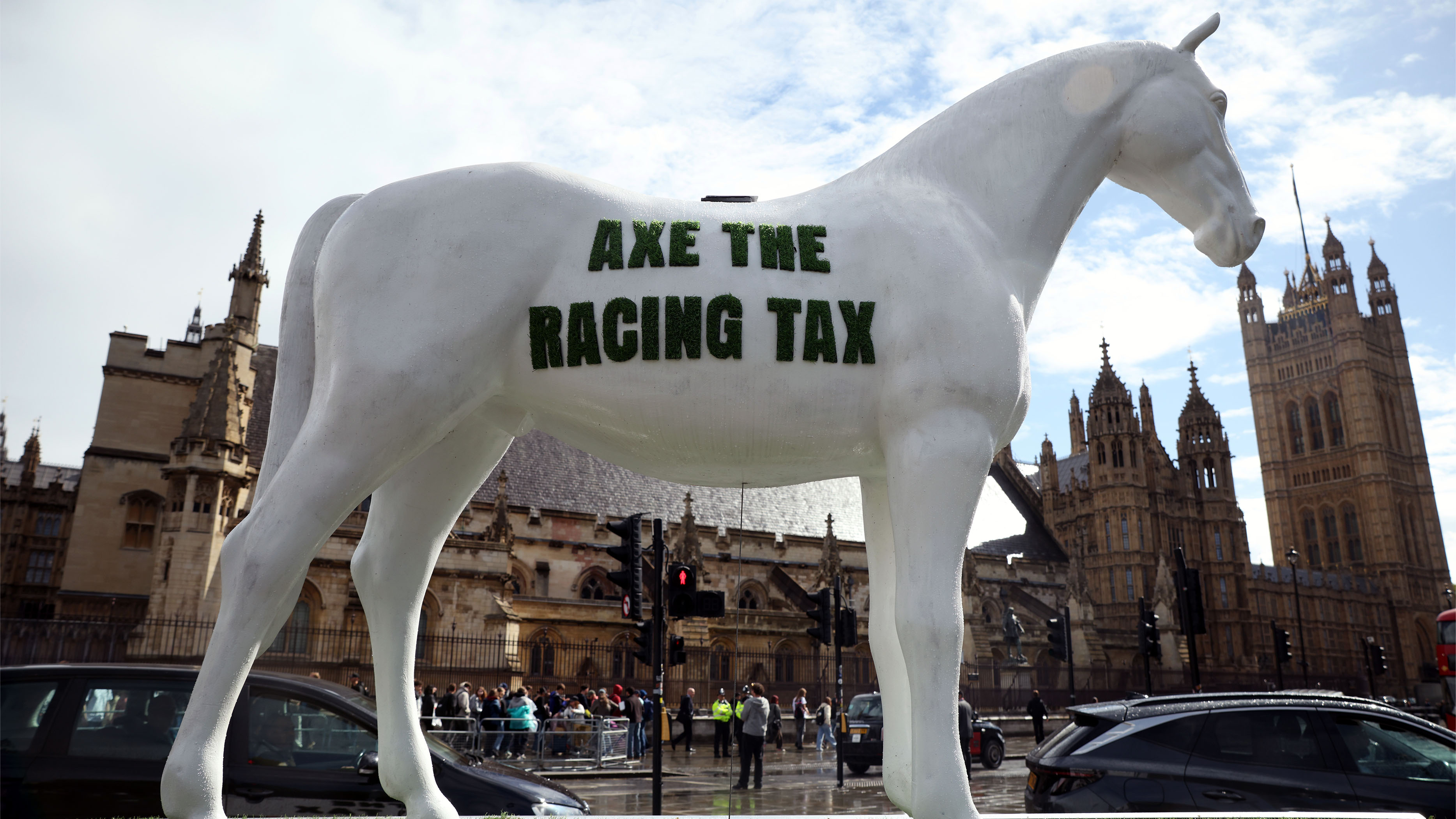How red-state Democrats blew it
These Democratic senators had an extraordinary opportunity in 2018. They've already squandered it.


For the last several years, the Democratic Party has attempted to make up for its complete lack of an economic agenda — or at least one that is not synonymous with the flourishing of Wall Street, tech companies, and upper-middle-class professionals — with a series of increasingly desperate performatively woke gestures. The transition in the space of less than half a decade from President Obama's solemn disapproval of same-sex marriage to Nancy Pelosi's insistence that having separate men's and women's lavatories in a school or a restaurant is as opprobrious as Jim Crow has not been lost on people.
"It doesn't matter how much we scream and holler about jobs and the economy at the local level. Our national leaders still don't get it," David Betras, the chairman of the Mahoning County Democrats in Ohio, told The Washington Post recently. "While Trump is talking about trade and jobs, they're still obsessing about which bathrooms people should be allowed to go into."
The Democrats are acting like fools. Twenty percent of Americans rank economic problems as their top concern. The only single item that ranks higher is displeasure over America's awful politicians (22 percent). You might notice that gay rights and transgender bathrooms do not register at all in Gallup's polling.
The Week
Escape your echo chamber. Get the facts behind the news, plus analysis from multiple perspectives.

Sign up for The Week's Free Newsletters
From our morning news briefing to a weekly Good News Newsletter, get the best of The Week delivered directly to your inbox.
From our morning news briefing to a weekly Good News Newsletter, get the best of The Week delivered directly to your inbox.
Democrats need an economic agenda that voters think will actually help them. That would be popular and effective. It is no coincidence that none of the five vulnerable Democratic senators currently polling behind Republican challengers supported the single-payer health-care plan introduced by Bernie Sanders. Instead, Jon Tester in Montana, Joe Manchin in West Virginia, Claire McCaskill in Missouri, Joe Donnelly in Indiana, and Heidi Heitkamp in North Dakota have all stuck to their party's Clintonite right flank on economic issues.
These red-state Democrats have gotten one thing right politically: They have wobbled on abortion, gay marriage, and other social questions about which their constituents have decidedly conservative views. Each of them represents a state won by President Trump in 2016. It is perhaps no surprise that The New York Times ranked them the five least progressive Democrats in the Senate last year.
They're also all probably going to lose their seats in this fall's midterm elections.
Why, after all, would voters in their respective states support generic Clintonite candidates when they rejected the genuine article herself only two years earlier? Given a choice between a blue neoliberal who doesn't care about moral issues and a red one who at least pretends to do so, Trump-state voters are going to choose the red one, albeit perhaps without enthusiasm.
A free daily email with the biggest news stories of the day – and the best features from TheWeek.com
Red-state Democrats have squandered what ought to have been an extraordinary opportunity. A genuine socially conservative but economically progressive populist who could persuade voters that the GOP does not represent the interests of ordinary working people would be the most significant figure in American politics of the last 30 years or more. A Democrat capable of articulating why single-payer health care, a higher minimum wage, mandatory paid leave, a robust welfare state, and a fairer trade policy would benefit rural Americans while credibly opposing abortion would crush any potential Republican challenger.
Instead, these five Democrats will be replaced by generic Republicans who will in all likelihood go on to vote in favor of things like gutting the Obama-era expansion of Medicaid while paying lip service to what conservative voters believe about social questions. Another electoral cycle will go by in which the problems identified by Thomas Frank in What's the Matter With Kansas? go unaddressed.
This essential tension between social conservatism and globalist economics is a problem for Republicans as well. We see the mirror image of the McCaskill dilemma in the House races for the 23 districts that went for Hillary Clinton in 2016 despite currently being represented by country-club Republican congressmen. There is a good chance that many of these GOP incumbents will lose. At the end of the day neoliberal Democrats are considered equally trustworthy guardians of the economic interests of white suburbanites — perhaps more trustworthy. It is entirely possible that in 2018 we will see Democrats make significant gains in or even retake the House of Representatives for the exact same reason that they lose ground in the Senate.
All of which brings us to the perennial question of what either of our two major political parties stands for. The answer is essentially nothing. The varying degrees to which voters understand this, and their willingness to accept it is an immutable fact of existence, are far more interesting objects of study.
Matthew Walther is a national correspondent at The Week. His work has also appeared in First Things, The Spectator of London, The Catholic Herald, National Review, and other publications. He is currently writing a biography of the Rev. Montague Summers. He is also a Robert Novak Journalism Fellow.
-
 The Week Unwrapped: Why is horse-racing going on strike?
The Week Unwrapped: Why is horse-racing going on strike?Podcast Plus, will the South Korean women who worked in state-run brothels set up for US soldiers succeed? And what’s behind a surge in leg-lengthening surgery?
-
 Sudoku medium: September 12, 2025
Sudoku medium: September 12, 2025The Week's daily medium sudoku puzzle
-
 Crossword: September 12, 2025
Crossword: September 12, 2025The Week's daily crossword
-
 Ghislaine Maxwell: angling for a Trump pardon
Ghislaine Maxwell: angling for a Trump pardonTalking Point Convicted sex trafficker's testimony could shed new light on president's links to Jeffrey Epstein
-
 The last words and final moments of 40 presidents
The last words and final moments of 40 presidentsThe Explainer Some are eloquent quotes worthy of the holders of the highest office in the nation, and others... aren't
-
 The JFK files: the truth at last?
The JFK files: the truth at last?In The Spotlight More than 64,000 previously classified documents relating the 1963 assassination of John F. Kennedy have been released by the Trump administration
-
 'Seriously, not literally': how should the world take Donald Trump?
'Seriously, not literally': how should the world take Donald Trump?Today's big question White House rhetoric and reality look likely to become increasingly blurred
-
 Will Trump's 'madman' strategy pay off?
Will Trump's 'madman' strategy pay off?Today's Big Question Incoming US president likes to seem unpredictable but, this time round, world leaders could be wise to his playbook
-
 Democrats vs. Republicans: which party are the billionaires backing?
Democrats vs. Republicans: which party are the billionaires backing?The Explainer Younger tech titans join 'boys' club throwing money and support' behind President Trump, while older plutocrats quietly rebuke new administration
-
 US election: where things stand with one week to go
US election: where things stand with one week to goThe Explainer Harris' lead in the polls has been narrowing in Trump's favour, but her campaign remains 'cautiously optimistic'
-
 Is Trump okay?
Is Trump okay?Today's Big Question Former president's mental fitness and alleged cognitive decline firmly back in the spotlight after 'bizarre' town hall event
